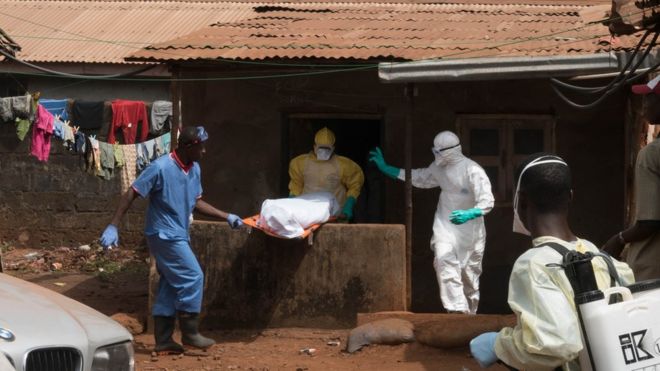 MARK GEORGIOU
MARK GEORGIOU
They were ordinary people doing an extraordinary job in extremely dangerous times.
Now new research suggests Red Cross volunteers who helped bury most of the bodies of Ebola victims in West Africa could have prevented more than 10,000 cases of the deadly disease.
More than 28,000 people were infected with Ebola in 2014-2015. Of those, 11,310 people died.
The worst affected countries were Guinea, Liberia and Sierra Leone.
A major part of the response was ensuring the safe burials of people who had died of Ebola. The bodies of victims were particularly toxic.
Community funerals, where people helped wash the bodies of their loved ones, contributed to so many people becoming infected in the earlier stages of the outbreak.
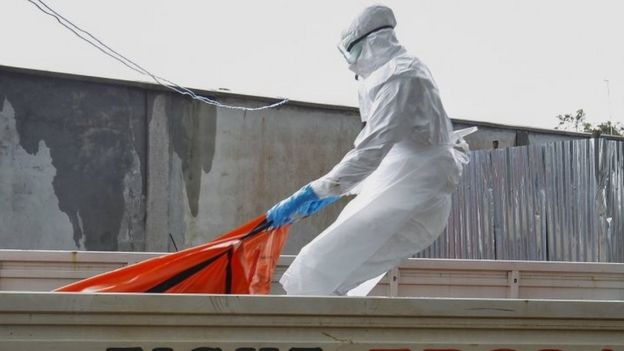 EPA
EPA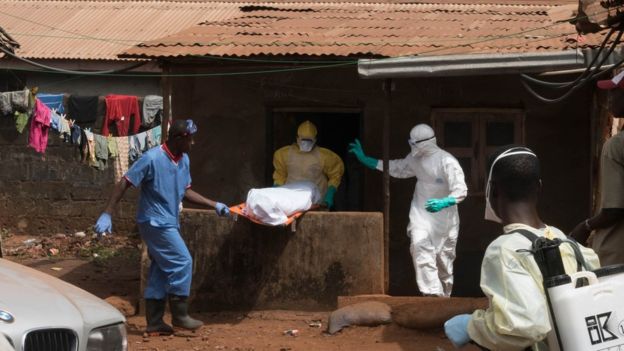 MARK GEORGIOU
MARK GEORGIOU
Within months, the epidemic had become the worst public health emergency of modern times.
The study, published in the PLOS Neglected Tropical Diseases journal, used statistical modelling to measure the impact of the Red Cross safe and dignified burial programme.
Researchers focussed on 45 unsafe community burials and the 310 people who were identified as having had contact with the infected bodies. They found, on average, just over two people went on to develop Ebola for every unsafe community burial that took place.
The bigger risk was to those who cared for a loved one with Ebola before their death. Researchers found many more infections could have been prevented if the sick were treated in hospital rather than by their families and communities.
However, using these estimates, the study suggested safe and dignified burials by Red Cross volunteers prevented between 1,411 and 10,452 cases of Ebola.
The authors said these are conservative estimates.
They highlighted a number of limitations in the study, including the challenges of collecting very personal and sensitive information about funerals, and the length of time between when some of the burials took place and when the data was collected.
Ending the war
Hundreds of paid volunteers took on the grim task of collecting bodies from people's homes in full personal protective gear, while also having to manage the grieving families and communities.
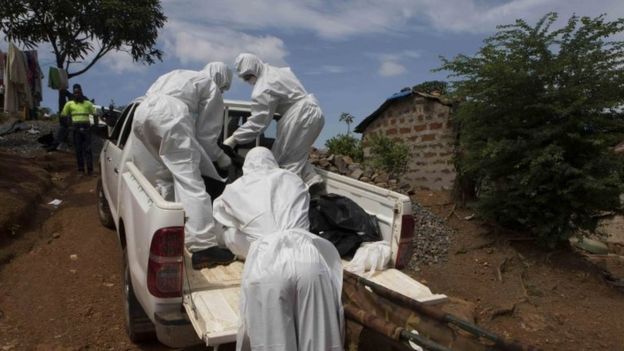 REUTERS
REUTERS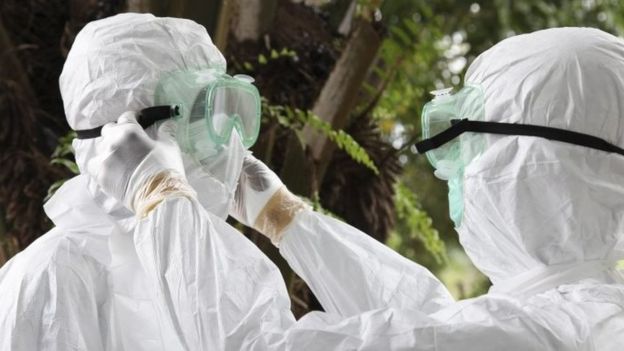 EPA
EPA
They were ordinary West Africans, such as teachers and college students. Many carried out the relentless and dangerous work for months.
Some were stigmatised in their communities, because people became scared they might bring the virus home with them.
In reality, they were helping to stem world's worst ever Ebola outbreak.
"It was very difficult work," said Red Cross volunteer Mohamed Kamara who I spent a day with as he collected bodies in Sierra Leone in 2014.
"It's good news that people realise the impact of what we did to help end the transmission of Ebola," he said while reacting to the findings of the study from the capital Freetown.
"Some people didn't even want to come near us at that time.
"But the team we worked with helped give us the courage to do this important work… and we ended this war."
No comments:
Post a Comment